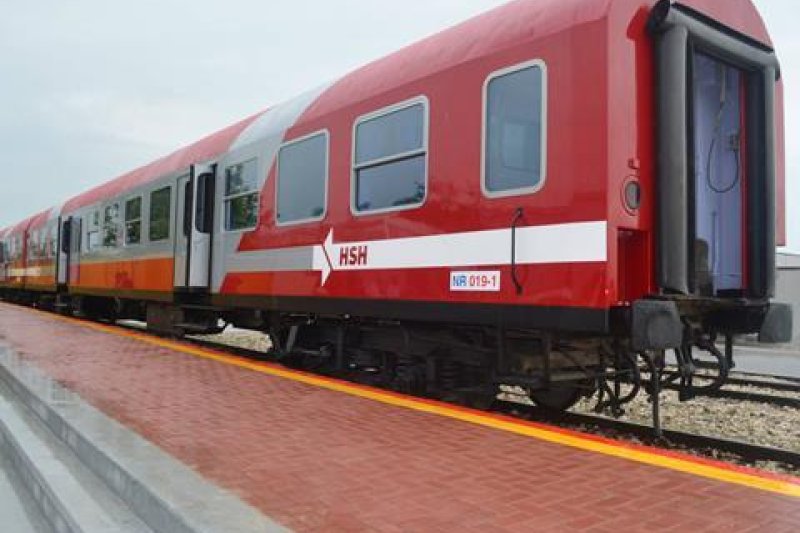New Railway to Serve 2.3M Passengers/Year
The Committee on Legal Affairs, Public Administration, and Human Rights reviewed on Monday the agreement that paves the way for the construction of the railway connecting Vora with Hani e Hoti, the border with Montenegro.
The financial contract between Albania and the European Investment Bank, part of the World Bank Group, for the railway line Vorë-Hani i Hotit - Porta Globale was presented to the Committee by Enkelejda Muçaj, Deputy Minister of Infrastructure and Energy.
In her report before the members of the Committee, Muçaj emphasized that the total cost of this project is estimated at Euro 373 million, part of which will be covered by the state budget, the rest by the European Bank for Reconstruction and Development, the EU through the Western Balkans Investment Framework and European Investment Bank.
"Euro 133 million is in the form of a grant. This has been the focus of our work, to have support that comes in the form of grants at an almost zero cost. In the state budget for this project, Euro 3 million have been provided for the expropriations", said Muçaj.
The Deputy Minister emphasized that this project will be completed by 2030. "Today's draft law foresees a financial support of Euro 100 million that is added to the loan of Euro 98.5 million with the EBRD," Muçaj said.
According to her, the financing will be used for the rehabilitation of one of the very important railway lines that belong to one of the main corridors connecting Albania with Montenegro and then with Ljubljana, Belgrade, and Zagreb.
“The project creates a possibility of connectivity between very important infrastructures in the country such as the Port of Durrës and the connection then with Corridor 8. It is about 120 km distance with an intensity of 2.3 million travelers per year and 9 thousand tons of goods per year,” the deputy minister noted.
Muçaj emphasized that these are soft loans that come with an interest that is determined at the time the loan is granted, while the first five years are free of principal payment.
The project is of great strategic importance and will contribute to the development of railway transport infrastructure in Albania. It is part of the Core Network of the indicative extension of the Trans-European Transport Network (TEN-T) in the Western Balkans (Rail Route 2).
The rehabilitation of the railway line will bring the infrastructure to EU standards and will create conditions for the development of passenger and freight services in Albania.
By increasing the quality, availability, and reliability of rail services, the project will develop multimodal and intermodal transport in Albania and the wider region, and thus facilitate trade and economic links with neighboring countries and EU member states. It will also contribute to the long-term goal of building green, sustainable, and integrated economies in the Western Balkans.













